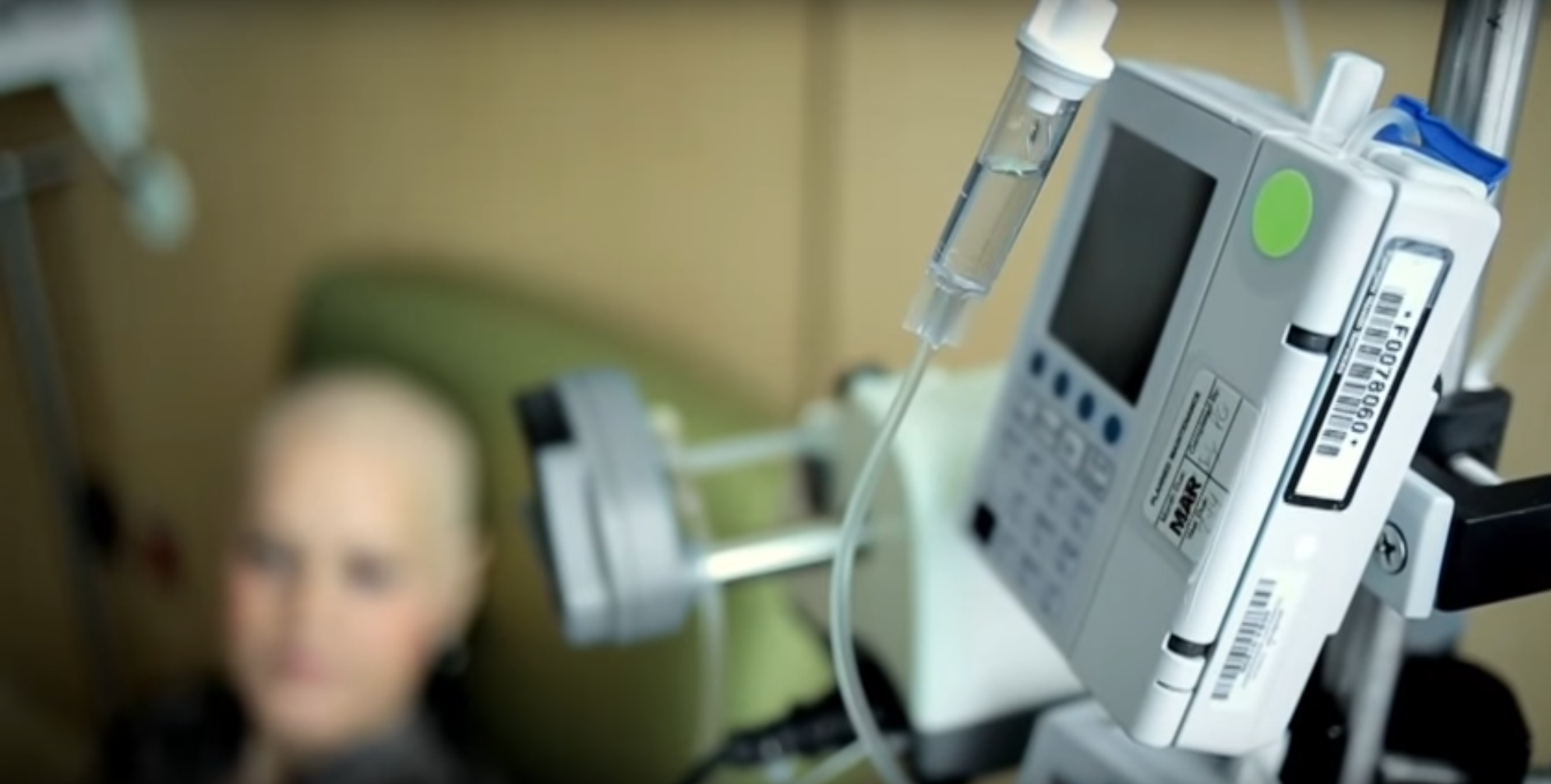If you’ve experienced breast cancer, you know that there can be countless physical wounds, from mastectomy scars to broken bones to radiation burns. But have you thought about the invisible wounds that lie within us after the trauma of a breast cancer diagnosis and treatment?
In today’s blog, we’ll explore the effect of one of breast cancer’s invisible wounds: how it can increase or challenge one’s spirituality.
We’ll hear from our previous blog expert, Andy Tix, Ph.D., about the former, and we’ll introduce you to Deanna Thompson, Ph.D., who will address the latter through her own experience with metastatic breast cancer.
Trauma Can Increase Spirituality
 “We all like to be in control,” begins Dr. Tix. “Research shows that when we experience an event in which we don’t have much control, we are more likely to turn to religion or other spiritual practices. We turn to something beyond ourselves to feel some sort of secondary control.”
“We all like to be in control,” begins Dr. Tix. “Research shows that when we experience an event in which we don’t have much control, we are more likely to turn to religion or other spiritual practices. We turn to something beyond ourselves to feel some sort of secondary control.”
Breast cancer is surely one of those events in which there is little control. There’s the diagnosis, in which you find out you have cancer, sometimes over the phone, in the car, or on the bleachers during your child’s soccer game. There are the treatments, chosen and set up for you by your medical team. There are surgeries, conducted while you’re under anesthesia. There’s the progression of the disease, where decisions are literally life or death.
“For some people who are religious, there can be talk about God being in control, with God having a plan, and everything happening for a reason,” Dr. Tix points out. “I think this is all related. While this is more about religion, spirituality would seem seem similar: if you feel little control over a situation, you look for something you have control over.”
Dr. Tix brings up the current situation to which all of us can relate: the Coronavirus (COVID-19) pandemic. “It’s basically uncontrollable and nobody knows what’s going to happen,” Dr. Tix explains. “I’d bet a lot of people are engaging in more spiritual activity these days because of this feeling.”
Spirituality need not always be rosy, positive, and feel-good. “Spirituality and religiousness can be powerful resources for working through really difficult emotions so we’re not avoiding the fact that we’re going through something awful,” Dr. Tix shares. “This can deepen our spirituality: it’s not just turning to spirituality because we’re desperate; it’s that it can actually help us gain a more meaningful appreciation of spirituality.”
Dr. Tix suggests certain types of activities – which he calls positive coping techniques – that can strengthen spirituality: “turning to a loving divine force, seeking support from people in your spiritual community and working through difficult emotions with them, spending time in nature, journaling about our emotions, and physical activities like yoga, deep breathing, and meditation… These all are deeply spiritual activities and they all can help us get through the worst of times.”
Trauma Can Challenge Spirituality
When Dr. Deanna Thompson was diagnosed with metastatic breast cancer 12 years ago, after breaking her spine twice, “I was devastated,” she begins. “I thought I didn’t have much time left.”
A professor, author, and life-long Lutheran, Dr. Thompson is now in her third remission from metastatic breast cancer. But she will never be cured, receiving ongoing chemotherapy for the rest of her life.
“I have a friend that calls trauma ‘the suffering that remains’,” she states. “There’s a death of the health of your body, yet you continue to live, and the suffering that continues with you is the trauma.”
 Metastatic breast cancer continues to carry with it a sense of trauma for Dr. Thompson, who calls this an “invisible wound” that isn’t very well understood by society. “I feel that everyone understands that cancer is really horrible, and treatment is really horrible. But I don’t think society understands the ongoing emotional, physical, and spiritual suffering a lot of people with really serious illness experience.”
Metastatic breast cancer continues to carry with it a sense of trauma for Dr. Thompson, who calls this an “invisible wound” that isn’t very well understood by society. “I feel that everyone understands that cancer is really horrible, and treatment is really horrible. But I don’t think society understands the ongoing emotional, physical, and spiritual suffering a lot of people with really serious illness experience.”
Suffering that includes sadness, anger, and guilt. Suffering that causes someone to feel “undone.” Suffering that can be aggravated, intensified, shamed, and/or minimized by one’s faith tradition or spiritual community, which can become a vicious cycle of more suffering, more doubt, and more guilt. In her most recent book, Glimpsing Resurrection: Cancer, Trauma, and Ministry, Dr. Thompson shares stories, research and personal experience to “help people not feel worse about their lives for having these natural emotions.” She continues, “When you feel there is nowhere to go with these feelings, we can feel stuck because we feel like we shouldn’t be angry because we’re still alive. When we can acknowledge this, it helps people feel validated. When we make space for the sadness and trauma, it can help us heal. This can lead to a sense of starting to imagine moving beyond that.”
“One of the things that trauma does,” she says, “is that it robs you of an ability to imagine a future.” While treatment for someone with advanced stage cancer is never curative, it can be successful (halting the cancer’s progression and/or remission). “You’re not dying immediately, and the future opens up again, but you can’t image what it’s going to look like to live in this space. This falling apart that happens at the end of treatment . . . it can happen when there’s something positive to celebrate.”
 For Dr. Thompson, “This happened when my eldest went off to college. I couldn’t even imagine what would happen if I went out of remission while she was away and how (my husband and I) would deal with that. While we were celebrating the fact that I got to see her high school graduation, which I didn’t think I would get to see, I was falling apart and I couldn’t imagine what the future looked like.”
For Dr. Thompson, “This happened when my eldest went off to college. I couldn’t even imagine what would happen if I went out of remission while she was away and how (my husband and I) would deal with that. While we were celebrating the fact that I got to see her high school graduation, which I didn’t think I would get to see, I was falling apart and I couldn’t imagine what the future looked like.”
Now, she takes time for quiet prayer and reflection, where she is able to “bring my own sense of being undone – and others I know and care about who are undone – to God… to voice the sadness, the loss, and the anger. To give others the message that it’s OK to do this.”
Dr. Thompson has written two other books about breast cancer. Hoping for More: Having Cancer, Talking Faith, and Accepting Grace is a personal memoir that chronicles her metastatic breast cancer experience, from her initial diagnosis after breaking her spine twice through the struggles, emotions, and fears that result in a faltering faith.
In her second book, The Virtual Body of Christ in a Suffering World, Dr. Thompson, a self-proclaimed “digital skeptic” before she was diagnosed, had a change of heart about technology after her brother created a CaringBridge site for her to share her experiences with family and friends. She was amazed at how her support network was able to “minister” to her spiritually online.
“I was really critical of digital technology, thinking it was isolating us from one another. I didn’t own a cell phone and was really proud of that,” she admits. “However, when my body was completely broken, the only place I felt like myself was online. I could write in full sentences and the tears that I had didn’t stop me. It was the only space in my life where my body didn’t determine my interaction with people.”
 She continues, “When in-person, people would look at me and start to cry or they’d look at me and I could tell that they thought I was dying. Being connected virtually I felt like I still sounded like myself and people could interact with me in a way that I couldn’t interact when I was physically present with them. I would have assumed that it’s always better to be in person with somebody when something has happened.”
She continues, “When in-person, people would look at me and start to cry or they’d look at me and I could tell that they thought I was dying. Being connected virtually I felt like I still sounded like myself and people could interact with me in a way that I couldn’t interact when I was physically present with them. I would have assumed that it’s always better to be in person with somebody when something has happened.”
Firefly Sisterhood exists to bring light to the darkness that is breast cancer. We thank Dr. Andy Tix and Dr. Deanna Thompson for the spark of light they’ve offered to you in reading their thoughts and sharing their experiences.
Written by Amy Tix, breast cancer survivor and Firefly Staffer, who finds great comfort in thinking of trauma as lingering suffering that remains, because a breast cancer experience will always leave trauma in its wake.
